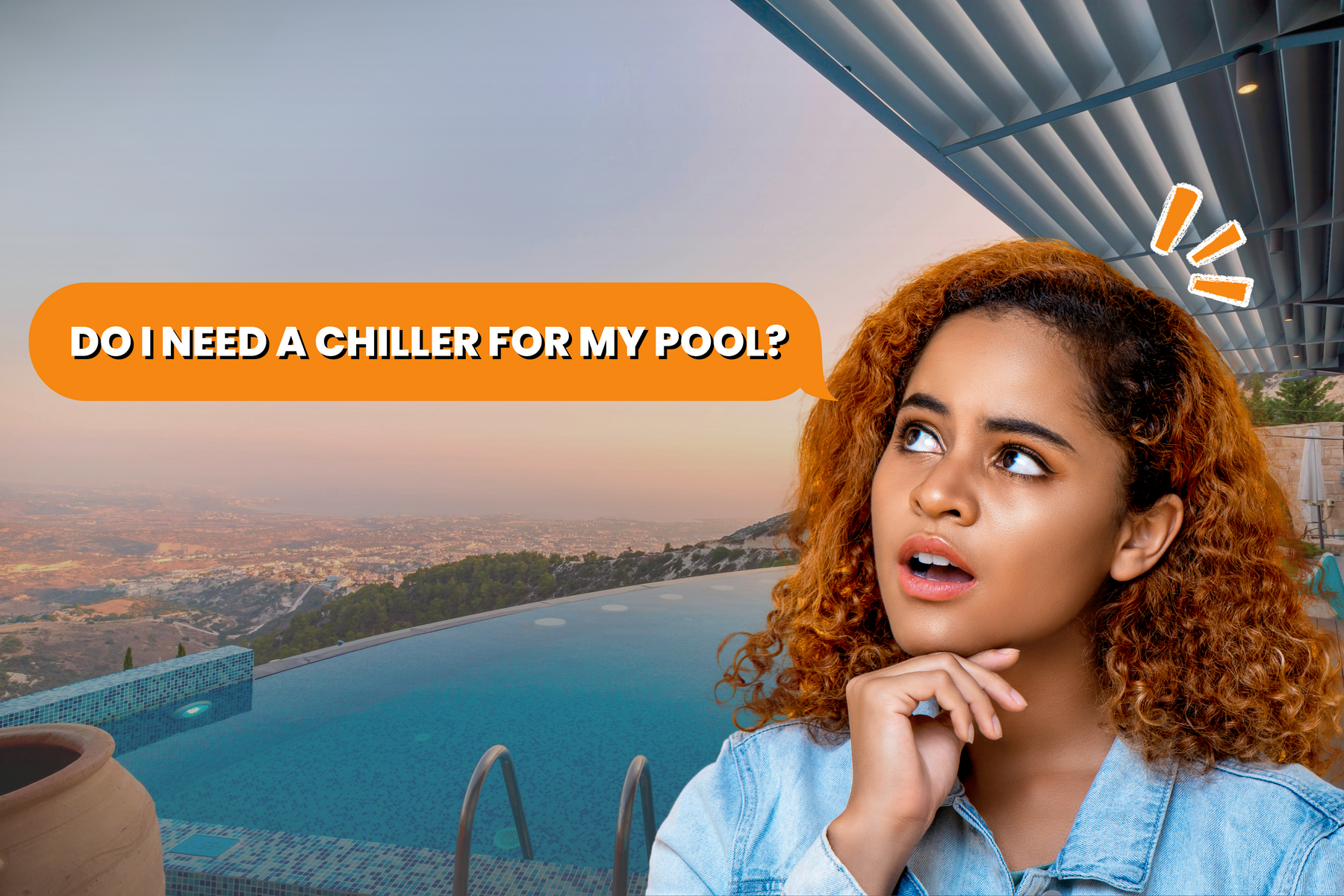
Do I Need a Chiller for My Pool?
What is a Pool Chiller and How Does it Work?
If your pool feels more like a hot tub by noon, the short answer is yes - a pool chiller might just be your new best friend. Whether you're melting in the sun or hosting weekend splash-fests, this article will help you decide if staying chill is worth a pool chiller. Keep reading!
When summer hits hard, your pool can go from refreshing to roast chicken-level warm in no time. That’s not just uncomfortable...it can mess with your water chemistry and make swimming feel more like a chore than fun. That’s where pool chillers come in.
They help you keep your cool, literally. But do you need one? Let’s break it down.
A pool chiller is basically your pool's personal A/C!
It takes in warm pool water, cools it down using a fan or refrigerant system, and sends it back into the pool feeling fresh and crisp.
Here’s the simple version: the chiller pulls heat out of the water and dumps it into the air. Some models use fans to do this, others use more advanced systems that work like a mini air conditioner.
Either way, your pool goes from “hot soup” to “ahh, that’s better.”
Key Reasons to Consider a Pool Chiller
Maintaining Optimal Pool Temperature
Hot days can push your pool water into the high 90s - not exactly ideal for a cool dip. A chiller helps keep the temperature steady, even when the sun’s doing its worst.
Think of it like this: when the outside feels like an oven, your chiller makes sure your pool doesn’t turn into one too. If you like swimming without feeling like you're in bathwater, a chiller’s a smart move.
Chemical Efficiency and Algae Control
The hotter your pool water, the faster chlorine burns off. That means more chemicals, more maintenance, and more chances for algae to crash your party.
Cooler water helps slow that process down. It keeps your chemical levels stable and your pool water clearer.
Less slime, less stress.
Reducing Water Evaporation
Warm water evaporates faster - especially if your pool gets full sun. That leads to more refilling, higher water bills, and wasted resources.
Chillers help slow that down. By keeping water temps lower, they reduce how much water disappears into thin air.
It’s a small change that adds up over the long haul.
Choosing the Right Pool Chiller Size
Factors Affecting Chiller Size
Picking the right size chiller isn’t just about how big your pool is. You also need to think about how much sun it gets, how deep it is, and how hot it gets in your area.
A shallow pool in full sun? You’ll need more cooling power. A shaded deep-end pool? Maybe not so much.
Basically, it’s not one-size-fits-all.
Calculating Your Pool's Cooling Needs
To figure out how strong your chiller needs to be, start with your pool’s volume in gallons. Multiply that by 8.33 (that’s how many BTUs it takes to cool a gallon of water by 1°F), then multiply that by how many degrees you want to lower the water temperature.
For example, if you have a 20,000-gallon pool and want to cool it by 10°F, you’ll need a chiller that can handle around 1.67 million BTUs total.
Don’t worry - you won’t have to do this math every time. Contact us if you need help!
The Benefits of a Pool Chiller (and Heater-Chiller Combos)
Besides making your pool more enjoyable, a chiller can save you time and money. Cooler water means fewer algae problems, more stable chemicals, and lower water bills.
If you want the best of both worlds, consider a heater-chiller combo. It cools your water in the summer and warms it up when the cooler months roll in.
That way, you're not limited by the weather. You're swimming on your own terms.
Related reading:





Leave a comment